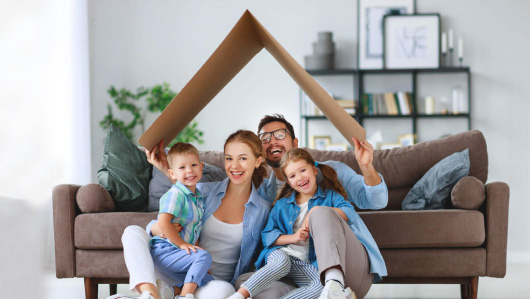[Solution]

Chai Jing's "Under the Dome" uses professional data and easy-to-understand language to let Chinese people understand the serious harm of smog. In the film, Chai Jing said, "I am afraid that my daughter will one day ask me 'what is the blue sky' and 'why keep me at home'", and she 'seals the gaps of every door and window with tape'...
Locked up at home? Is it "safe" to stay at home? Chai Jing is a well-known journalist, but as a competent mother, we cannot agree with her family's experience in dealing with smog.
I think if the windows are open, the source of the indoor air is the same as the outdoor, there is almost no difference. In the face of serious smog pollution, some families choose to close their doors and windows, thinking that the smog will not be able to enter the room, in an attempt to give themselves psychological comfort. However, Zhong Nanshan, a well-known Chinese scholar, pointed out at the WHO Respiratory Medicine Research Conference that the airtight indoor pollution is 20 times that of the outdoors, and we live indoors most of the time every day, so indoor pollution should be paid more attention.
Some families also use air purifiers to deal with smog weather. Although the quality of air purifiers has been exposed by CCTV and condemned by the media, the market is also extremely hot. What do you think of air purifiers? In my opinion, air purifiers are definitely useful, but there are two problems:
1. The use area is limited. This is easy to understand. Choosing an air purifier needs to be based on the indoor use area. Usually, the product can be obtained by the maximum air volume value (m3/h) ÷ 5 (times/h) ÷ 2.6 floor height (m). The corresponding maximum applicable space. And many of the air purifiers that have been sampled have serious false standards in the applicable area.
2. It can purify but not balance the air composition. As we all know, human activities will consume oxygen and release carbon dioxide, and the house is a relatively closed space. With consumption, the oxygen content gradually decreases, which will gradually affect the health of the family.
Therefore, we have to find a device that is more suitable for the domestic situation to protect the indoor air quality and protect the elderly and children. In Europe, many countries mandate that buildings must install ventilation systems to ensure air circulation, and some countries that are more concerned about protecting the health of their citizens have written it into the law. Reflected back to China, the ventilation system equipped with filtering and purification equipment is called the central fresh air system.
Central fresh air system is a set of independent air treatment system composed of fresh air ventilator and pipeline accessories. The fresh air ventilator filters and purifies the outdoor air, and then transports it indoors through pipelines. At the same time, the indoor dirty air with low oxygen content is discharged to the outside. Through continuous and uninterrupted operation, the indoor air quality is guaranteed to meet the standards 24 hours a day, and a relatively ideal indoor living environment is achieved. The fresh air system provides abundant oxygen indoors, blocks germs and dust with a diameter larger than 0.3 microns from the outdoors, and at the same time discharges excess indoor carbon dioxide, organic volatiles, smoke and odors, making the indoor environment similar to a clean natural environment. People in a clean and oxygen-rich natural environment, without the interference of pollutants and bacteria, no longer feel nausea, fatigue and weakness, people will feel comfortable and happy.
To prevent smog, start from small things, bit by bit. Indoor air quality needs more attention, and the fresh air system is the best choice to solve indoor air pollution. Finally, in response to Chai Jing's call to share the same fate with the breath, please keep in mind the environmental pollution reporting number 12369, and it is best to use 12369 in the same way as the spirit of using 12315.